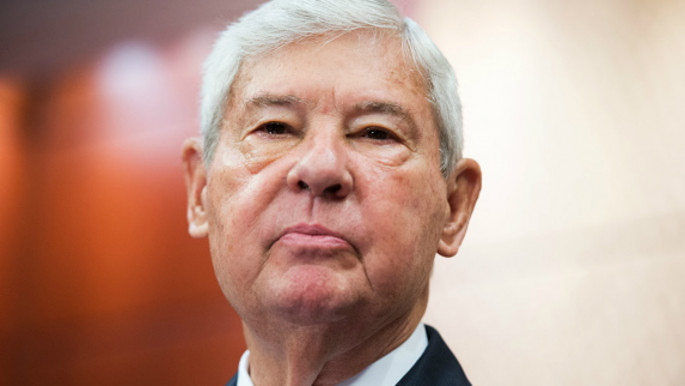Saudis brace for the release of classified 9/11 report
But some officials worry its eventual publication - 15 years after the assault on New York and Washington - will stir suspicion at a time of tense ties.
In December 2002, a year after the attacks, the House and Senate committees on intelligence published a report on the US investigation.
But the then-president, George W Bush, ordered that 28 pages of the report be classified - ostensibly to protect the methods and identities of US intelligence sources.
Last month, former senator Bob Graham said the pages should be made public and alleged Saudi officials had provided assistance to the 9/11 hijackers.
Graham, who was the Senate intelligence committee chairman, said the White House had told him it would decide by June whether to declassify the pages.
 |
The issue of alleged Saudi involvement in the attacks has been brought up again by attempts to lodge a law suit against the kingdom |  |
The issue of alleged - and fiercely denied - Saudi involvement in the attacks has been brought up again by attempts to lodge a law suit against the kingdom.
| Investigators have reportedly found no proven link between Saudi officials and the 9/11 hijackers [Getty] |
Relatives of some of the American victims of the hijackers are lobbying Congress to pass a law lifting Saudi Arabia's sovereign immunity from liability.
Mystery pages
But Riyadh insists it has nothing to fear from the mysterious 28 pages and that US investigators have thoroughly debunked any allegation they may contain.
"Our position, since 2002 when the report first came out, was: release the pages," Saudi foreign minister Adel al-Jubeir told reporters in Geneva.
"We know from other senior US officials that the charges made in the 28 pages do not stand up to scrutiny. And so yes, release the 28 pages."
For most in Washington, the congressional report was superseded in July 2004 by the final report of the separate 9/11 Commission set up by Bush.
 |
The 9/11 Commission found no evidence of official Saudi complicity, but the ongoing secrecy surrounding Congress' earlier 28 pages has continued to stir suspicion. |  |
This found no evidence of official Saudi complicity - but the ongoing secrecy surrounding Congress' earlier 28 pages has continued to stir suspicion.
 |
| Former senator Bob Graham said the pages should be made public, alleging Saudi officials had provided assistance to 9/11 hijackers [Getty] |
"But every four or five years this issue comes up and it's like a sword over our head. Release it."
Jubeir added that, thanks to multiple leaks in the years since the congressional report was locked away in a safe on Capitol Hill, he can guess what it says.
"Nothing stays a secret," he said. "So we know that it's a lot of innuendo and insinuations."
So what exactly are the secret allegations?
The 28 pages are thought to include a claim that Princess Haifa, the wife of then-Saudi ambassador Prince Bandar, sent money to the hijackers.
Princess Haifa sent thousands of dollars to Osama Basnan, a Saudi living in San Diego who befriended 9/11 hijackers Nawaf al-Hazmi and Khalid al-Mihdhar.
 |
Princess Haifa sent thousands of dollars to Osama Basnan, a Saudi living in San Diego who befriended 9/11 hijackers Nawaf al-Hazmi and Khalid al-Mihdhar |  |
Investigators were told the money was to pay to treat Basnan's wife for thyroid cancer. The 9/11 Commission found no evidence it was passed to the hijackers.
Another likely allegation in the missing pages concerns Omar al-Bayoumi, a Saudi civil aviation official who had been studying in California.
Bayoumi was arrested in England 10 days after the September 11 attacks and questioned by British and US authorities before being released without charge.
It is thought the missing pages cite allegations that he met Hazmi and Mihdhar at a Los Angeles restaurant.
Clandestine ties?
 |
|
Foreign minister Adel al-Jubeir says Saudi Arabia cannot refute allegations if the report has not yet been released [Getty] |
He helped the pair settle in San Diego, leading to suspicions that he was acting on behalf of Saudi paymasters to help prepare the al-Qaeda attack.
But the 9/11 Commission report said FBI investigators found Bayoumi to be "an unlikely candidate for clandestine involvement with Islamist extremists".
Whatever allegations are in the missing pages of the congressional report, Saudi Arabia's defenders will point to the later 9/11 Commission report.
"Saudi Arabia has long been considered the primary source of al-Qaeda funding," it said.
 |
Saudi Arabia has long been considered the primary source of al-Qaeda funding - 9/11 Commission report |
 |
"But we have found no evidence that the Saudi government as an institution or senior Saudi officials individually funded the organisation."
But if Riyadh is so confident in its defence, why then the nervousness about the release?
Reports allege the kingdom threatened to withdraw $750 billion in investments from the US if Congress were to strip it of its immunity in US courts.
This claim triggered outrage - the tabloid New York Daily News reported it under the headline "Royal Scum" - but Jubeir denies it amounted to a threat.
"Nonsense," he declared, arguing Riyadh had simply warned the legislation being considered by Congress would overturn the idea of sovereign immunity.
"It's a simple principle and it protects everybody, including the US," he said.
"We said a law like this is going to cause investor confidence to shrink, not just for Saudi Arabia but for everybody," he added.
"But this idea that 'Oh my God, now the Saudis are threatening us'? We don't threaten things."





 Follow the Middle East's top stories in English at The New Arab on Google News
Follow the Middle East's top stories in English at The New Arab on Google News


